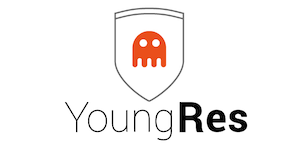
Gamification is a rigorously researched approach to design that’s backed by brain science. It takes the mechanics that make games so much fun and applies them to other, less fun contexts — like online learning — to make them more engaging.
A Short Survey of Past Approaches
The European Commission has funded several programs and projects to address radicalisation. Probably most examples are related to religious radicalisation, such as TRIVALENT, ARMOUR and RiskTrack projects.
Beyond religious radicalisation, other projects, such as SAVEit. GOAL or The First Tee have focused on using sport as a way to develop social, psychological and personal skills. Instead of focusing their efforts only on risk factors, which were traditionally the main topic analysed on the literature, these projects focus on the preventive psychological and contextual conditions of the person, or protective factors. Therefore, working with different personal and social skills through education, the youngster's resilience can be improved, which in turns reduce the chance of being involved in a radicalisation process.
There are several programs that address radicalisation through psychological training. Research, such as that conducted by Feddes et al. (2015) has shown that the improvement of psychological skills related to resilience was significantly useful to prevent radicalisation. Some examples of these programs are: Diamant, STREET or UK Resilience Program (UKRP), among others.
Diamant is a program organized on three modules which focus on different aspects of resilience: self-esteem, moral judgements and conflict management. Another popular project is STREET (Strategy to Re-Empower and Educate Teenagers), which focuses on providing participants with skills such as team working, critical thinking, decision-making, leadership and time management. These are part of the denominated life-skills that are useful and necessary to deal with the challenges of any individual's daily life. Finally, it is important to highlight the UK Resilience Program (UKRP) that was implemented in 22 schools in the United Kingdom. It is not a program to prevent radicalisation but it has been taken into account to confront radicalisation (Euer et al., 2014). The main purpose of this project was to promote resilience skills and well-being. To achieve this goal, the participants are taught to manage their emotions and deal with conflict using the three-step ABC approach (activating event, belief, consequence).
All the above-mentioned programs focus their interventions on one or more psychological and emotional skills related to resilience and have found a positive impact of these skills to prevent emotional distress and radicalisation (Doosje et al, 2016, Kinman et al, 2010).
The Fortius Approach
Fortius program (Mendez et al, 2012) is an intervention program developed in Murcia and Elche (Spain) with the aim of promoting personal competences of children between 8 and 12 years old. It aims to increase the psychological resilience of the kids, using a clinical psychology approach to strengthen the personal protective factors. It is based on different intervention programs deployed in several countries, such as Coping Cat (Kendall et al, 1990) or FRIENDS for life program (Barret et al, 2000).
The goal of the Fortius program (Mendez et al, 2012) is to prevent several psychological problems related to emotional struggles, such as anxiety, phobias or depression in youngsters. In order to do that, this program tries to improve psychological resilience across three different dimensions (Mendez et al, 2012): Emotional resilience: to understand and control emotions. Behavioural resilience: to improve social and personal skills. Cognitive resilience: to enrich the cognitive and decision-making process.
The program works with these dimensions as a whole, as it presents a circular relationship among people thoughts, specific emotional states, and final behaviours. Kids are introduced to the concept of resilience from the beginning of the intervention, and they are encouraged to improve these three pillars of the resilience through comprehensive talks, class activities and role-play.
Each intervention of the program is composed of 12 sessions. Each session takes place on a different day, and all of them include two different concepts, which are introduced during the class, the execution of an activity for each theoretical content, homework assignment and a final funny activity to relax the children.
The content presented in each session is related to one of the resilience dimensions previously explained. For example, emotional resilience activities can be related to progressive relaxation, behavioural resilience can be improved with active listening, and the cognitive resilience approached through cognitive restructuring.
